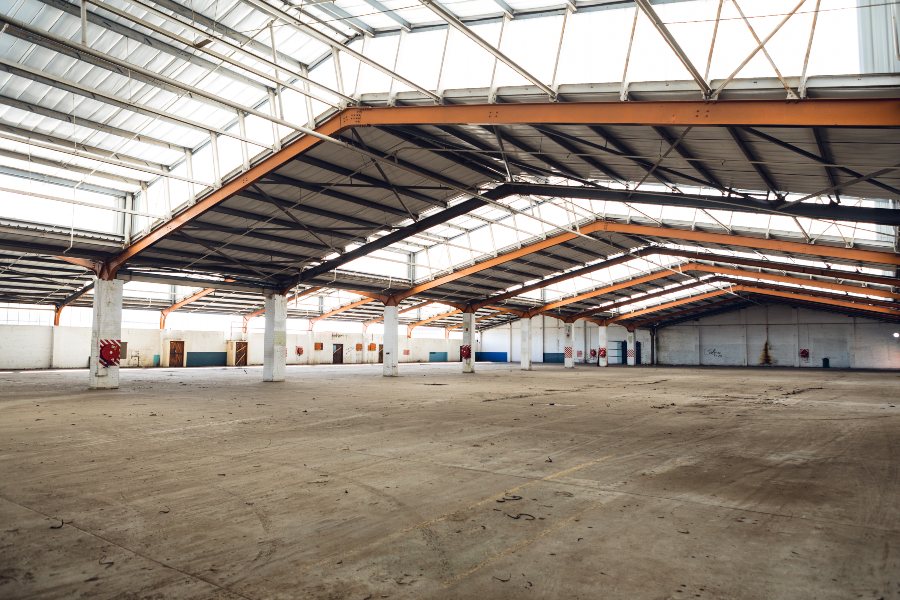How are industrial floor cleaning rates calculated? Take a look at some of the most important factors to keep in mind.
Industrial floor cleaning offers numerous benefits for businesses – from ensuring proper hygiene and safety to saving time and reducing expenses, it plays an important role in building a happier and more efficient workspace. In fact, studies have shown that workers are more productive and feel more appreciated in a clean environment.
If you are a company looking to hire industrial floor cleaning services, you may be wondering – what is the cost that you can expect, and what does a professional floor cleaning company take into account when calculating industrial floor cleaning rates?
In this article, we will talk about some of the biggest factors that contribute to the final cost of a cleaning service, and how it can benefit your business. So, without further ado, let’s jump right into it:
What are the factors that influence commercial cleaning rates?
1. Square footage
When calculating industrial floor cleaning rates, one of the most important factors that will be taken into account is the square footage of your facility.
It is the measurement used to determine the total area of a floor or space that requires cleaning – larger floor areas usually require more time, labor and cleaning materials, which leads to higher cleaning rates.
When hiring a professional cleaning company, they will ask you about the square footage of the floor area that you need to be cleaned. If you don’t know its exact measurements, you can get a tape measure and use it to determine the length and width of the floor.
Then, simply multiply the two numbers to get the total square footage.
Pro tip: some industrial spaces have irregular shapes or features like columns or equipment, making it more difficult to calculate the square footage needed for industrial floor cleaning rates. In that case, aim for dividing the floor area into smaller sections and calculating the square footage of each section separately. Then, sum it up to get the total square footage.
2. Type of floor surface
Another factor that impacts industrial floor cleaning rates is the type of floor surface. Some surfaces may require different cleaning methods and equipment, and may have their peculiarities which make them more challenging to clean. This reflects in the overall cost of the service.
Some of the most common types of floor surface include:
- Concrete floors – undoubtedly, one of the most popular flooring choices in industrial environments thanks to its durability. Cleaning concrete floors typically involve scrubbing, pressure washing and using specialized cleaning agents, among others actions.
- Polished concrete floors – characterized by their glossy, low-maintenance surface, polished concrete floors often need periodic polishing and the use of appropriate cleaning agents – considering the specialized process needed to clean them, the rates can be higher compared with other types of surfaces.
- Tile floors – this type of flooring is most commonly found in bathrooms, locker rooms and production areas. The cost of cleaning a tile floor will also vary depending on the type (ceramic, porcelain, natural stone), etc. as well as its condition.
- Vinyl floors – this type of floor surface is another popular choice in industrial settings, mainly because of its cost-effectiveness as well as ease of maintenance. Cleaning vinyl floors includes, but is not limited to, sweeping, mopping, buffing, polishing, stripping and waxing.
- Epoxy floors – thanks to their durability and resistance to chemicals, epoxy floors are highly suitable for industrial applications, making them a popular choice among companies. Due to their specialized maintenance needs, the cost of cleaning epoxy floors can be higher.
- Specialty Flooring – some industrial facilities may have specialty flooring, such as anti-static floors, anti-slip floors, or conductive floors. Cleaning such specialized surfaces may require unique cleaning methods and products, potentially influencing the industrial floor cleaning rates.
3. Frequency of cleaning
When discussing the factors involved in calculating industrial floor cleaning rates, we can’t forget to mention the frequency of cleaning. For example, if you are looking for industrial floor cleaning as a one-time service, it will cost a higher price compared with periodic cleaning or regular maintenance.
That’s because one-time cleaning jobs often require more intensive cleaning, as the floors might have accumulated a considerable amount of dirt, stains, or debris over time.
For this reason, we recommend regular maintenance and period cleaning by a professional company like TCS Floors to ensure that your industrial floors always stay in their best shape. If you are working on a regular maintenance contract, where we provide scheduled cleaning on a daily, weekly, or monthly basis, you can expect the lowest rates.

4. Level of cleaning
Another factor that impacts the final industrial floor cleaning rates is the level of cleaning required. Logically, performing a routine cleaning on a regularly maintained floor will not be the same as providing deep and intense cleaning of the floor.
Routine cleaning
Routine cleaning refers to regular maintenance cleaning performed at scheduled intervals, such as daily, weekly, or monthly. It involves cleaning tasks such as sweeping, mopping, and dusting to keep the floors clean and free from everyday dirt and debris.
This generally tends to be the most cost-effective option, as it focuses on maintaining the cleanliness of the floor and preventing the buildup of significant dirt or stains. As we mentioned earlier, a lot of build-up may require a much more intense, deep cleaning to achieve the desired level of cleanliness.
Deep Cleaning
Deep cleaning is more intensive than routine cleaning, and it involves a thorough cleaning of the industrial floors. It may include scrubbing the floor surface with specialized equipment to remove stubborn stains, grease, oil, or other contaminants.
This type of cleaning is often necessary when routine cleaning alone cannot adequately address the accumulated dirt and grime.
The cost of deep cleaning is higher than routine cleaning due to the additional time, effort, and equipment required. So, this is usually factored in when it comes to industrial floor cleaning rates.
Restorative Cleaning
Restorative cleaning is required when the industrial floors have significant buildup of dirt, stains, or damage, and they need to be brought back to an acceptable condition.
This level of cleaning may involve stripping and resealing floors, repairing damaged areas, or employing aggressive cleaning methods to address long-term neglect.
Restorative cleaning is the most expensive option as it demands substantial effort and resources to revitalize the floor’s appearance and functionality. It often needs specialized equipment, tools and cleaning products as well.
Specialized Cleaning
Some industrial floors may have specific cleaning needs, such as removing chemical spills, addressing hazardous materials, or cleaning sensitive areas.
Specialized cleaning requires specialized knowledge, equipment, and cleaning agents, and the cost can be higher due to the complexity and safety considerations involved.
Emergency Cleaning
In cases of unexpected accidents or spills that require immediate attention, emergency cleaning services may be necessary. Emergency cleaning rates may be higher than regular industrial floor cleaning rates, as they require quick response times and priority service.
5. Type of equipment
The type of cleaning equipment and technology employed can also influence the cost of industrial floor cleaning services.
Different types of equipment are designed for specific cleaning tasks and floor surfaces, and the choice of equipment can affect the efficiency, effectiveness, and labor required for the cleaning process. So, this is a common factor when it comes to the final industrial floor cleaning rates.
Some types of equipment include:
- Manual equipment such as brooms, mops, buckets, etc.
- Walk-Behind or Ride-On Floor Scrubbers
- Pressure washers
- Burnishers and buffers
- Specialty equipment
- Eco-friendly equipment
Other factors that play a role in industrial floor cleaning rates
While these are some of the most important factors that come into play when it comes to commercial cleaning rates, they are not the only ones.
Other things to keep in mind are the accessibility of the floor and the obstacles that may hinder the cleaning process, the local market rates, the labor costs, and any special requirements such as safety measures needed for the process.
On top of cleaning, if you are looking for other services – such as polishing, buffing, floor grinding, stripping, waxing or something else – this may add to the final cost.
Get a quote from TCS Floors
If you are looking for professional industrial floor cleaning rates anywhere in the United States, look no further than TCS Floors. As a nationally recognized company with more than 31 years of experience, we are the country’s leading floor care specialists.
Get in touch with us today and get the best industrial floor cleaning rates for your state and city.
FAQ
Does the frequency of cleaning impact the overall cost?
Yes, the frequency of cleaning can impact the overall cost. Regular maintenance contracts often offer cost savings compared to one-time or infrequent cleaning.
Are there additional charges for specialized cleaning services or equipment?
Yes, there may be additional charges for specialized cleaning services or equipment due to the extra expertise, resources, and specific requirements involved.
Are there discounts available for long-term contracts or bulk services?
Yes, we offer discounts for long-term contracts or bulk services, encouraging clients to commit to regular and ongoing cleaning arrangements.




